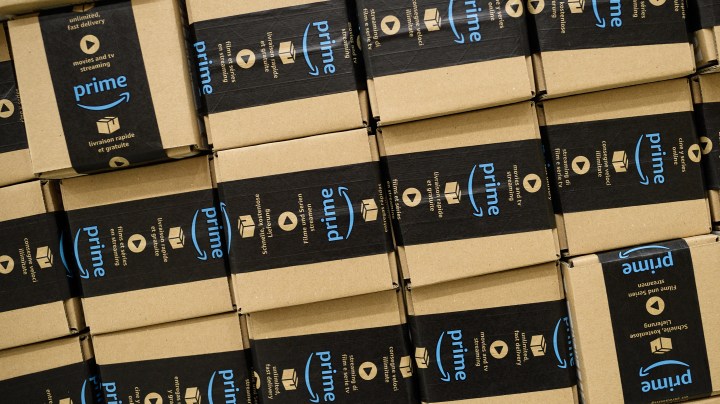
Why lots of influencers and websites want to help you shop Amazon’s Prime Day
Why lots of influencers and websites want to help you shop Amazon’s Prime Day

Monday and Tuesday are what you might call the “Black Friday” of summer — Amazon Prime Day — which means your social media and email this morning might’ve been jammed with best-buy recommendations from media outlets, bloggers and influencers.
The sale is huge, and consumers might be looking for help figuring out where the best deals are.
But there may also be some money in it for those recommenders.
Do you want some help finding the best deals on laptops? On beauty products? Stuff for your pets?
There are guides online to help consumers find the best deals on all those things and more. When consumers click a link and make a purchase, Amazon, just like other online retailers, will pay a small commission to the recommender.
That’s known as affiliate marketing, and all those little clicks can add up to big sales.
Sucharita Kodali, a retail analyst with Forrester, said it’s one retailers’ top online marketing strategies.
“The most important thing is email,” she said. “The second most important thing is Google. The third most important thing these days is Facebook. And then right after that is usually affiliates.”
It’s never been easier to become an affiliate, said Price Glomski, with the digital marketing agency PMG. But he said it’s also never been more challenging to make money as an affiliate.
“There tend to be like the top 10 or 15 that drive most of the volume, but there are hundreds of thousands of them within the marketplace,” he said.
Glomski said affiliates earn commissions that are typically between 3% and 7% of the sales price.
Affiliate marketing isn’t a new phenomenon.
But Michael Swart, a member of a Princeton research team who has studied affiliate marketing, said no one really knows how widespread it is.
“One of the big research questions that we’ve had this whole time is, you know, how how often does this actually happen?” he said. “Estimates are kind of all over the place and nobody really knows.”
The Princeton researchers focused on links in YouTube videos. Swart said it could be that one out of every 100 has an affiliate link, or the number could be as high as one in 20. But only 10% of videos with links also included disclosures, which means people who click a link likely don’t realize the recommender could benefit from their purchase.
There’s a lot happening in the world. Through it all, Marketplace is here for you.
You rely on Marketplace to break down the world’s events and tell you how it affects you in a fact-based, approachable way. We rely on your financial support to keep making that possible.
Your donation today powers the independent journalism that you rely on. For just $5/month, you can help sustain Marketplace so we can keep reporting on the things that matter to you.












